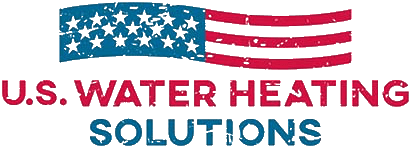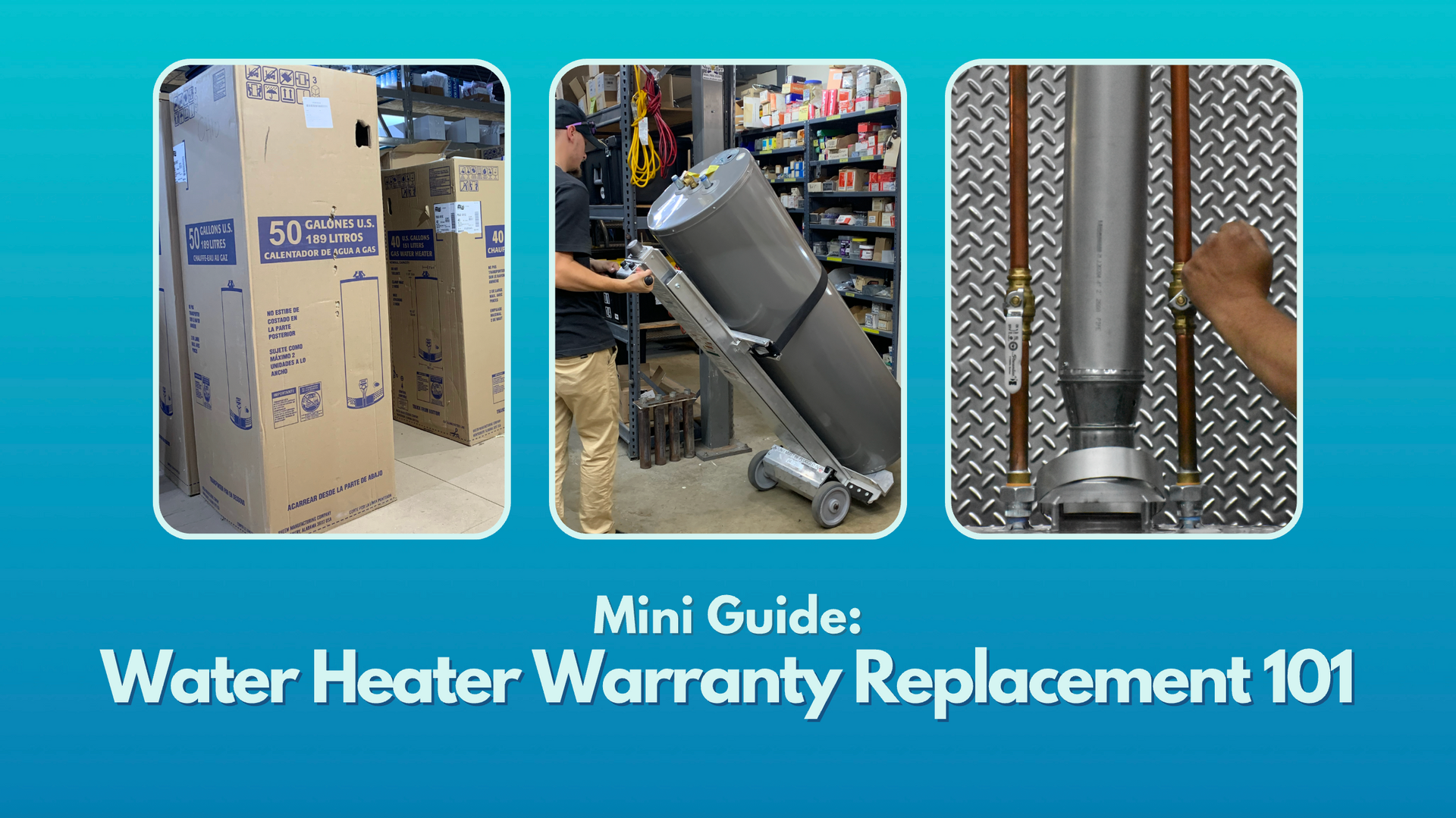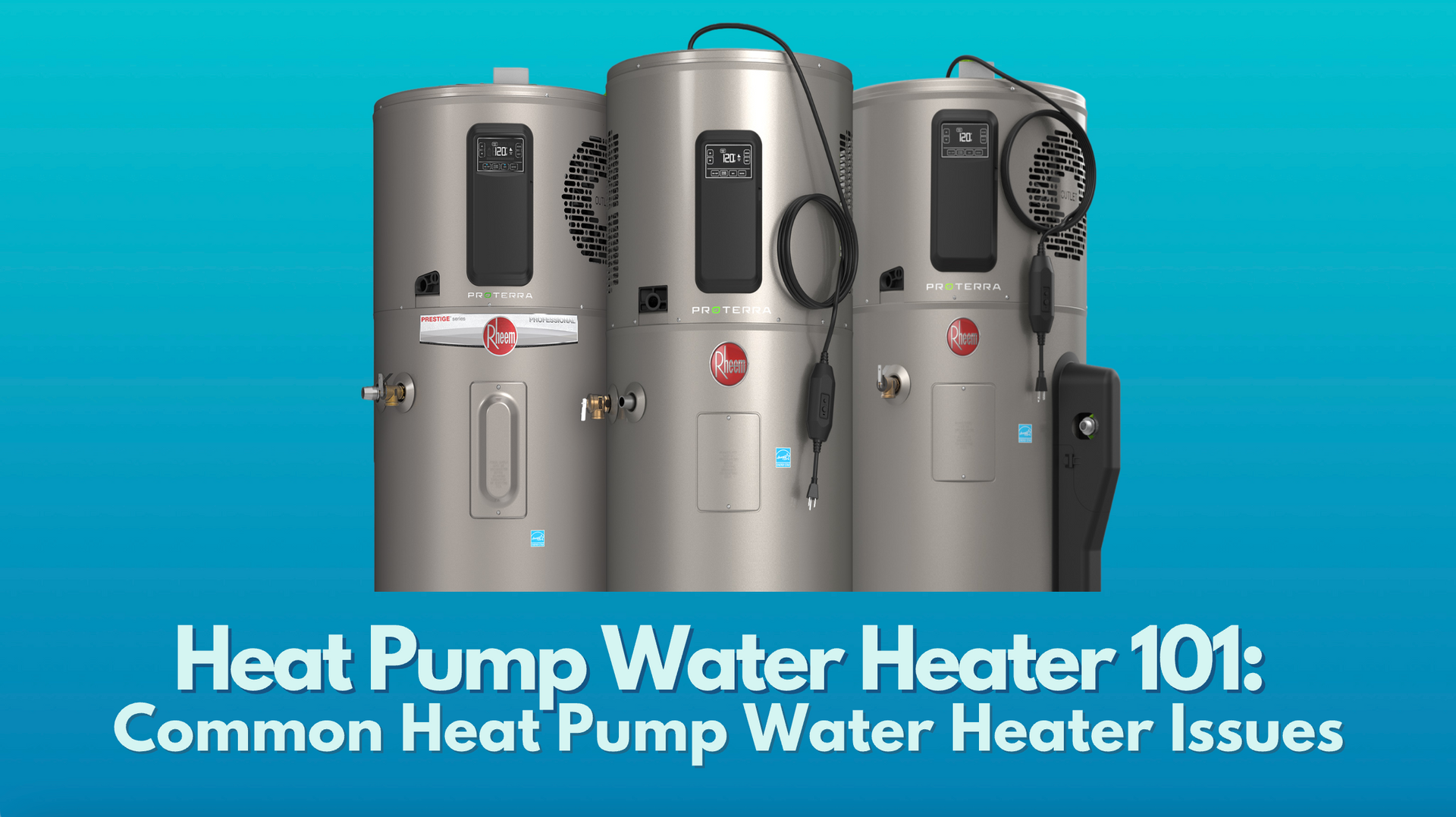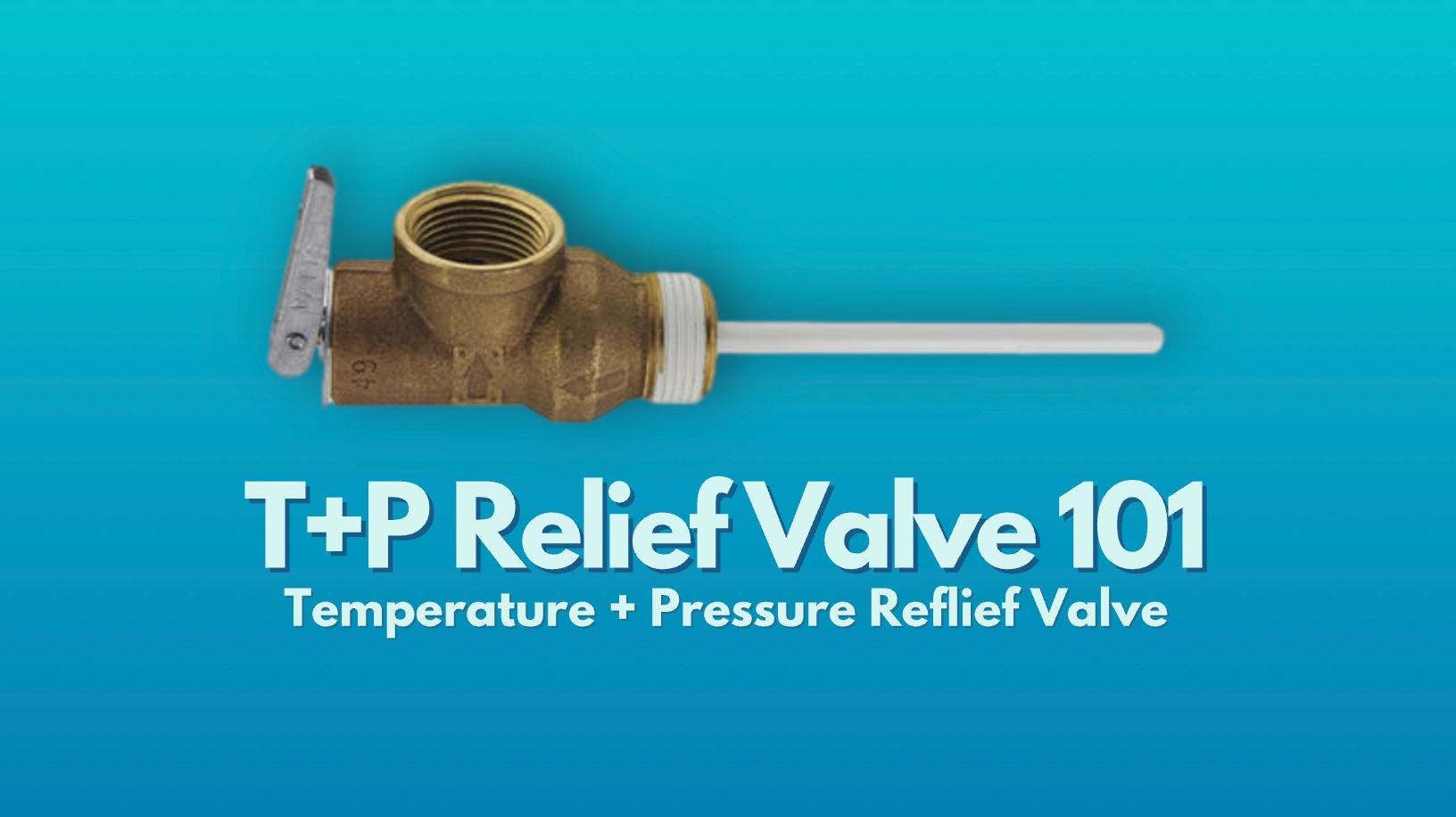Boilers: An Overview
Everything You Need to Know About Boiler Heating Systems
9 million households utilize a boiler heating system. While most popular in the United State’s northeast, you can find boilers throughout the entire country. When people use boiler technology, they tend to stick with it for numerous reasons. Learn more about boilers, how they work, and why you may want to use a boiler heating setup in your home.
What Is a Boiler?
A boiler is a steel closed pressure vessel that creates hydronic heat (hot water or steam). The hot water or steam exits the boiler to support various heating systems, including water heating and central heating.
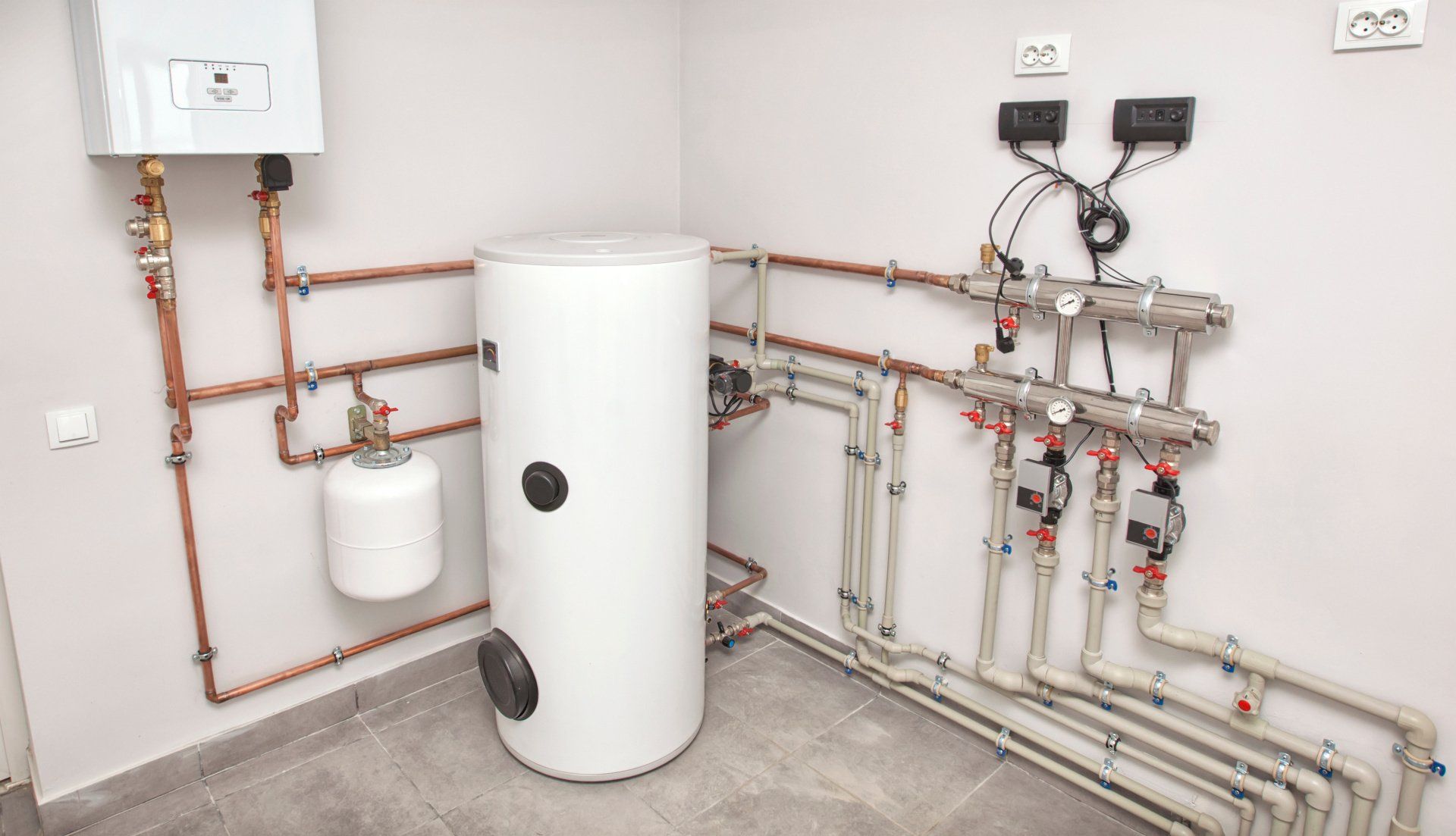
How Do Boilers Work?
A cold water supply fills the boiler unit with water. A gas burner or electric heating element heats the water, turning it to hot water or steam. The fumes from the gas burner exit through the exhaust (if applicable). The heat travels to the desired locations before returning to the boiler to get heated again.
A firetube boiler heats water using tubes filled with gas surrounded by water. This is the most common setup. A watertube boiler works in the opposite direction with water flowing through pipes surrounded by gas.
Boiler Fuel Sources
Boilers run on either coal, gas, or electricity. A gas boiler can run on either natural gas or propane. Gas boilers produce more heat more quickly than electric boilers, and gas costs less than electricity. However, electric boilers are more energy efficient, more eco-friendly, smaller, and contain less moving parts. Coal-powered boilers are becoming obsolete as only 130,000 American homes use coal for heat today.
Steam Boilers Vs. Hot Water Boilers
Steam boilers heat water to the point of converting it into steam (212°F), while hot water boilers stop heating the water before it turns into steam (180°F - 200°F). Steam boilers transfer heat through radiators, and hot water boilers transfer heat through boiler tubes. Steam boilers are more powerful, but they have more difficulty managing corrosion and sediment buildup.
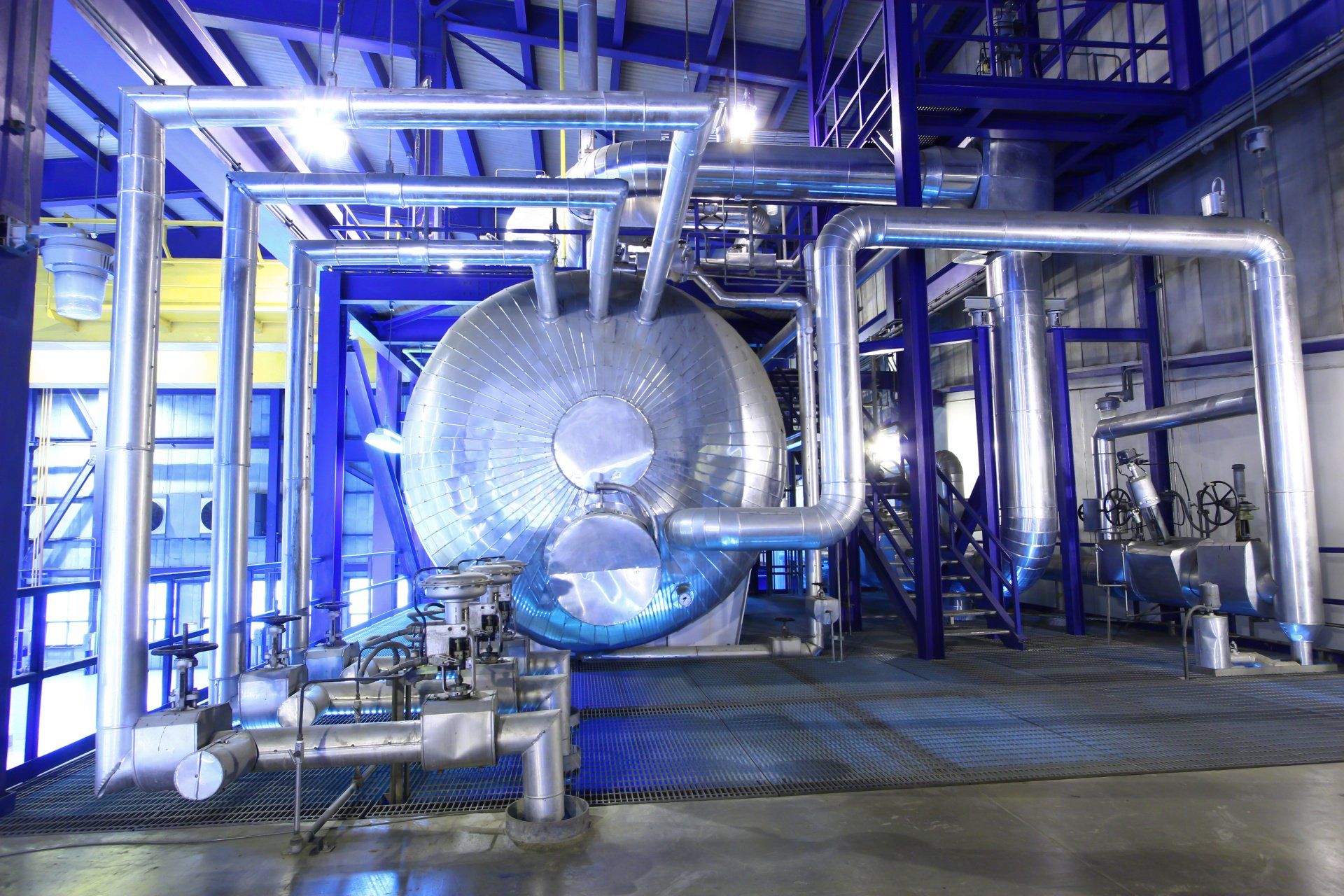
Types of Boilers
Combi Boiler
A combi boiler generates hot water using a tank and a heat exchanger in a wall-mounted unit, saving space in tight boiler rooms. These systems produce instantaneous hot water, but they work best in homes with adequate water pressure and low to moderate hot water demand.
Heat Only Boiler (Standard Boiler)
A heat only boiler is a single unit that produces hot water directly to your air handler or radiant. Heat only boilers utilize a closed system, meaning it includes an expansion tank.
Heat only boilers cost the least and satisfy high demand. However, they also take up the most space, run the least efficiently, and have the most moving parts.
System Boiler
A system boiler works in conjunction with a hot water storage tank, similarly to a heat only boiler, but it operates on an open system using an internal circulating pump, eliminating the need for an expansion tank and external pump.
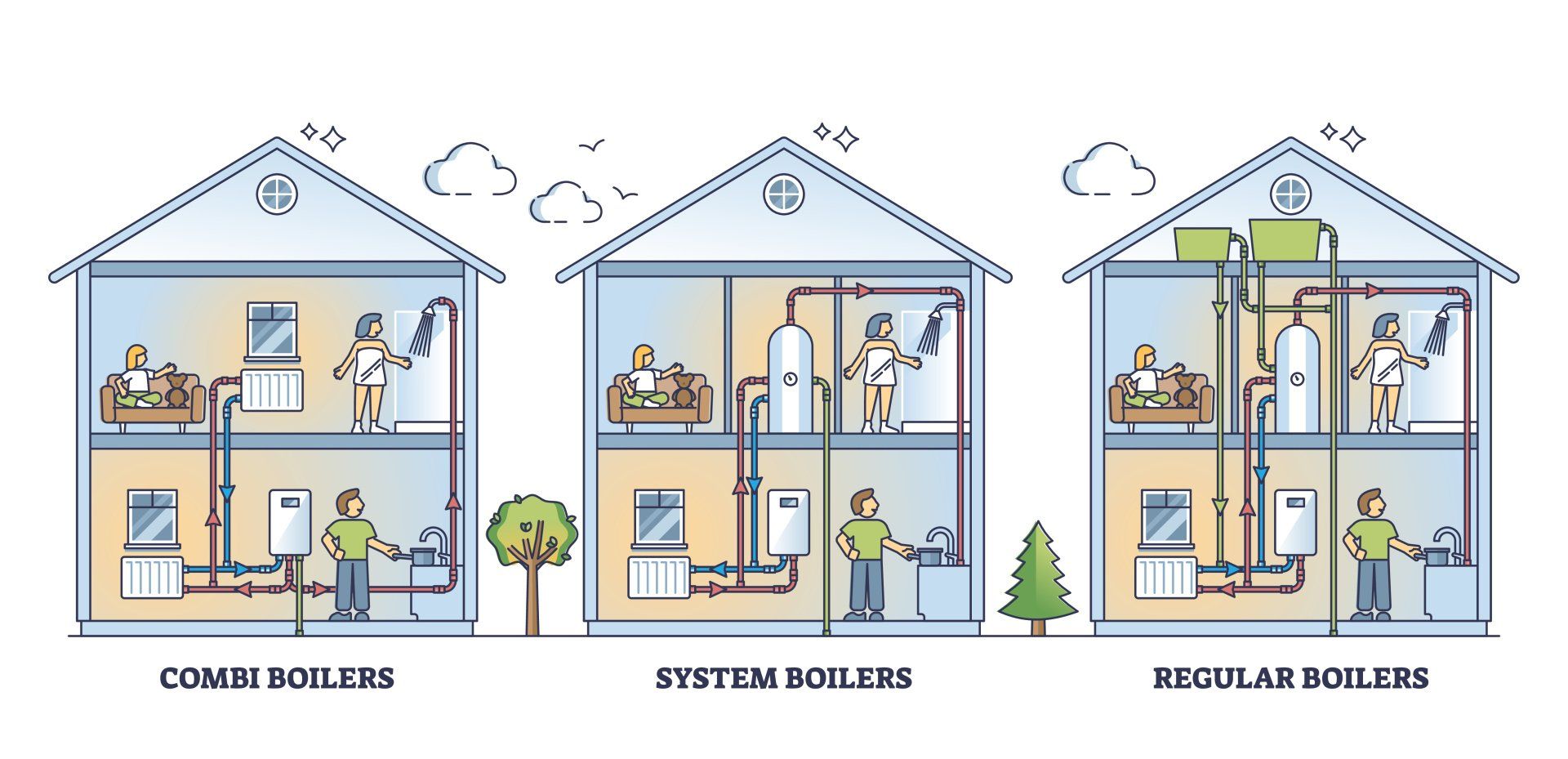
Benefits of Boilers
#1. Energy Efficient
Water heats up more quickly than air, and it stays warmer longer. Therefore, it uses less energy than conventional furnaces.
Manufacturers measure efficiency in boilers and furnaces using its Annual Fuel Utilization Efficiency (AFUE). This rating depicts how much of the energy produced by the unit went toward heating and how much was lost.
When shopping for an energy efficient unit, look for the Energy Star sticker. Even then, some units will be more efficient than others. Fuel type also determines efficiency with an electric boiler offering better efficiency than a gas boiler. The most efficient gas units that get AFUE ratings of 90% - 98.5% utilize sealed combustion and condensing technology. Condensing boilers contain an additional heat exchanger.
#2. Longevity
New boilers can last up to 30 years with minimal maintenance and repairs. A new furnace typically only lasts 15 - 20 years.
#3. Even Heat Distribution
Boilers produce radiant heat through long radiators, which distributes the heat evenly throughout a room. Furnaces, on the other hand, release heated air from one location.
#4. Improved Indoor Air Quality
Boilers don’t require ductwork, meaning there’s no dust, allergens, or mold getting into the air as with forced air systems. For this reason, it’s said that boilers create “clean heat”.
Boiler Safety
Gas-powered boilers emit carbon monoxide. An exhaust system transports the toxic gasses outside and away from your family. If the device experiences a gas leak or the exhaust system has a leak, it can lead to carbon monoxide in your home.
To ensure the safety of your family, install a carbon monoxide detector in your boiler room. You should also get the boiler inspected annually. In many areas, these safety measures are
required by law.
Boilers also include various safety features, depending on the type of boiler. Some boiler safety features include:
- Combustion Air Proving Switch - switch that ensures proper fan operation in the combustion chamber.
- Low Water Cutoff - device that shuts down the boiler in the case of low water levels.
- Pressure Relief Valve - valve that allows excess pressure to escape the unit.
- Flame Safeguard System - sensor that detects flame, preventing fuel to collect in the burner.
In order to ensure these safety components function properly, it's crucial to get preventative maintenance every year.
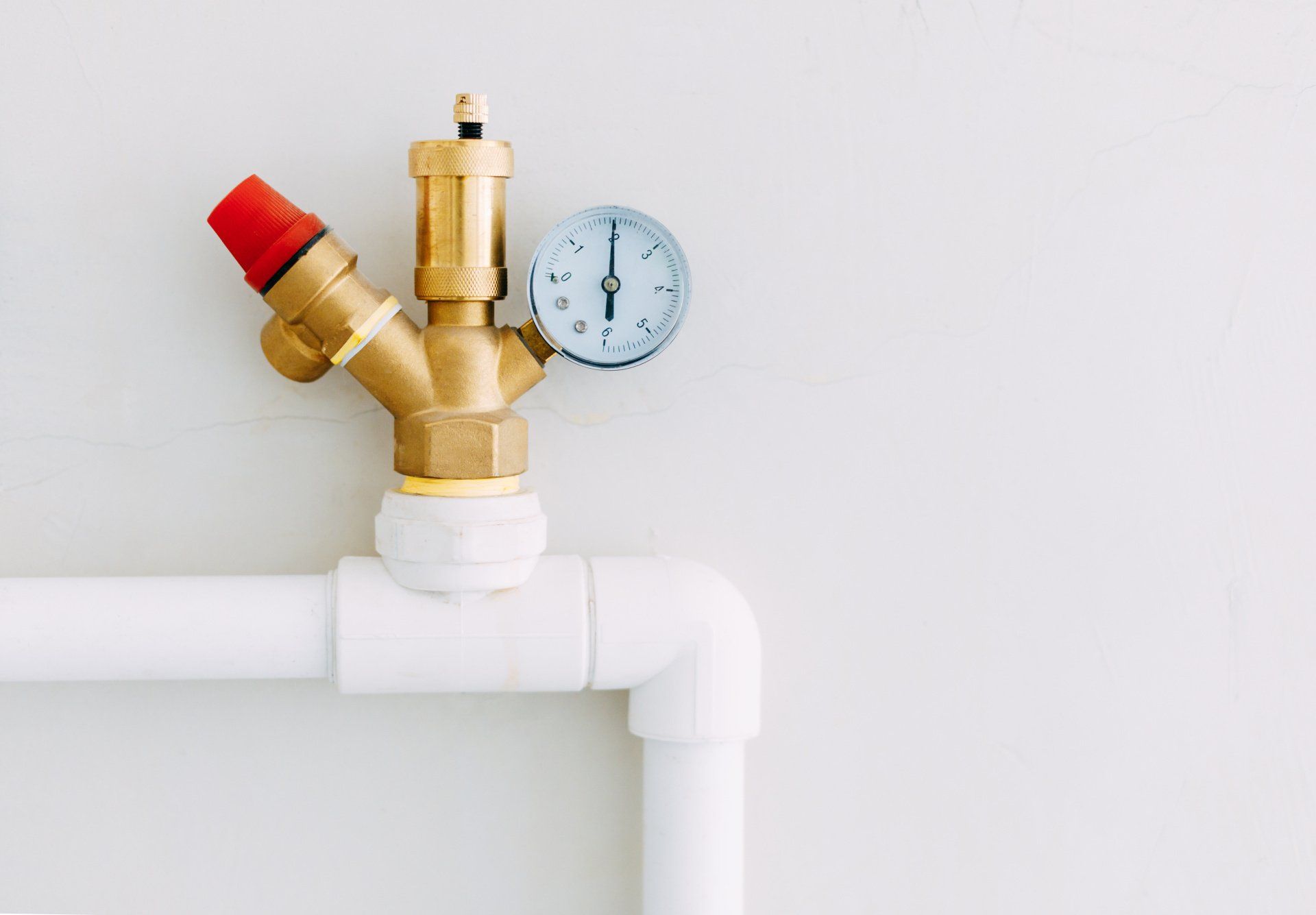
Common Boiler Problems
Freeze Damage
Freeze damage occurs during the winter months when temperatures drop below freezing. Pipes without proper protection may freeze if left exposed to the cold temperatures, causing severe damage. If a pipe bursts or a radiator cracks, the material will need to be replaced.
Puffback
Puffback occurs when fuel accumulates in the combustion chamber. When the fuel ignites, it creates a puff of smoke and soot.
Dry Firing
Dry firing refers to the process of the boiler operating without enough water, which can damage the heat exchanger or combustion chamber. Dry firing can occur due to a damage low water cutoff or sediment buildup in the unit.
Water Damage
Boilers that experience water damage may experience trouble with the burner and electrical components. Water damage can also void the warranty. Elevate the boiler to prevent water damage in the case of flooding and keep boiler rooms properly waterproofed.
Getting Boiler Service Through U.S. Water Heating Solutions
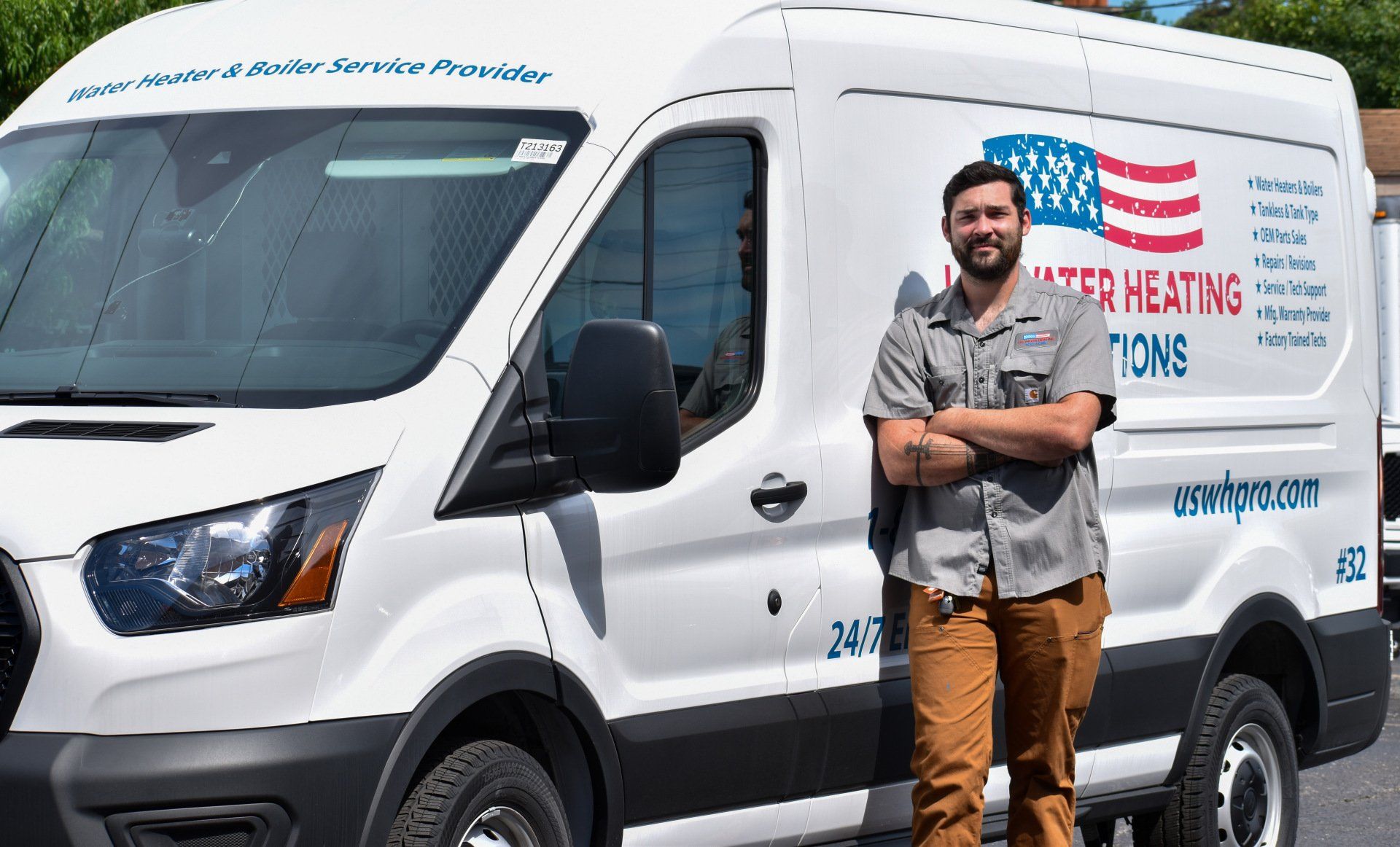
When you need boiler service, you need the hot water experts at U.S. Water Heating Solutions.
We have the experience and knowledge to service both residential and commercial boilers and water heaters. Techs arrive in company trucks fully-stocked with the most popular boiler parts to service your boiler as quickly as possible.
Do you need boiler service or water heater service in Illinois?
Contact U.S. Water Heating Solutions at 833-879-4776 or
request a quote online.



